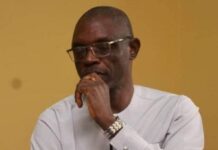Addressing Nigeria’s Leadership Crisis
By Khadijah Ahmad Ado,
Nigeria’s socio-economic challenges are legion. But before addressing the one which is the crux of this epistle, there is the need to first understand the meaning of leadership.
Leadership is the ability to lead an office of a government, a company or any organization.
Persons who are saddled with any kind of leadership responsibilities are called leaders.
Unlike in several civilized climes, leaders in this part of our world get caught up in thinking about power itself, rather than their responsibility to those they lead.
Nigeria is one of the countries that is blessed with endless natural resources.
Sadly, it has not been able to harness the resources in every productive way, partly due to inept and rudderless leadership.
In his 1984 polemic, “The Trouble with Nigeria,” Nigerian celebrated novelist and writer, Chinua Achebe, declared that “the trouble with Nigeria is simply and squarely a failure of leadership”.
That was almost four decades ago, and it still rings true today.
And then, there is the issue of basic competence and capacity which Nigerian leaders at all levels must have.
This is not just a question of university certificates, but of both moral and practical education, of the ability to manage people and resources and to be one with the community, the ability to recast the past in a different light and to hold bold visions of the present and future, and to mobilize Nigerians towards common goals.
But according to Daily Trust’s ace Columnist, Eugene Enahoro, today’s political officeholders concentrate on using power to enrich themselves, their families and their cronies, by looting public funds through outrageous allowances, pensions and kickbacks.
Read Also:
In a piece titled, “The triumph of shamelessness in public office,” Enahoro, further posited that: “It is trite that good leadership requires sacrifice, uprightness, humility, knowledge, wisdom, discipline, compassion, and commitment to the public good in terms of articulating good policies and stamping out corruption, all of which have been noticeably absent.
“It is self-evident that since 2015 leadership at the top has been shamelessly ideologically barren, therefore it should come as no surprise that Nigerians no longer trust political leaders who generally have no moral compass, no clear conscience and no shame”.
Regardless, Nigeria needs exceptional leadership at this point. Leadership during quiet and prosperous times is essential, but it does not bring out the best in us.
It is at a time of national crisis like the one we have at hand that exceptional leadership stands out.
It is at such a time that you will know leaders who have three of the essential qualities of true leaders – the ability to listen and understand the pains of the people they lead, empathy and willingness to accept that they do not have all the answers.
In our country today, these qualities seem to be lacking or have evaporated. If leaders at all levels are listening, they would have heard the loud groaning of Nigerians.
The economy is failing them, insecurity is threatening them, and hope is evaporating. Most Nigerians feel their government is insensitive to their pains.
A lot of goodwill has been lost, but there is still time for our leaders to take a holistic view of the current situation and come out with solutions to address the urgent security needs of Nigerians.
Failure to do this would only drive the country deeper into social, economic, and political ruin and may take the country towards an irreversible path of disintegration.
Khadijah Ahmad Ado is a student of Skyline University Nigeria, in Kano













